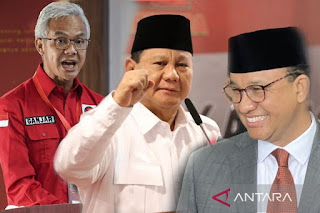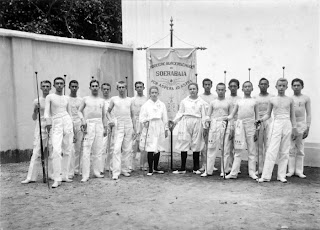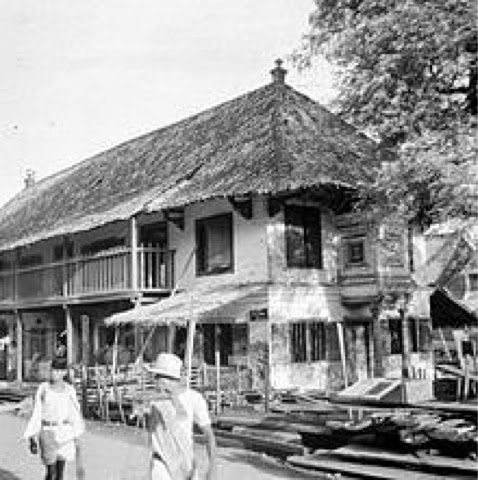GANJAR PRANOWO: The Right Choice For Indonesia ?
The upcoming Indonesia election is a hot topic of discussion among the political circles, especially with the recent announcement of the candidacy of Mr Ganjar Pranomo as a presidential candidate.
Mr Ganjar, born in Purworejo in 1968, started his career as a journalist before transitioning into politics in 1998. He was appointed as the Governor of Central Java in 2013, and subsequently delivered impressive results in Central Java's development, including the implementation of numerous infrastructure projects, poverty reduction programs, and good governance policies.
One of Mr Ganjar's significant achievements is his commitment to promoting sustainable development in Central Java. He has prioritized the improvement of the region's transportation infrastructure, including building more roads and bridges, to improve connectivity between rural and urban areas. His focus on infrastructure also extends to the development of water management systems, such as the construction of dams and irrigation channels, which has enabled farmers to better manage their crops and improve their yields.
Mr Ganjar has also demonstrated a significant commitment to the environment. He has initiated policies to reduce carbon emissions, planting millions of trees to mitigate the effects of deforestation and climate change. His sustainable development policies emphasize the need to balance economic growth and environmental protection.
Furthermore, Mr Ganjar has implemented good governance policies, such as the online public services platform, which streamlines public services and reduces corruption and bureaucracy. He has also prioritized poverty reduction efforts and social welfare programs, including cash transfers, to improve the livelihoods of the poor and vulnerable.
Despite his significant achievements, Mr Ganjar faces numerous challenges in the upcoming election. He will be running against other formidable candidates, and the current political climate in Indonesia is highly polarized. His success will depend on his ability to build a strong coalition that can effectively mobilize voters and attract support from key stakeholders, such as political parties, civil society organizations, and business groups.
In addition, Mr Ganjar's policies need to be clear and specific, as Indonesia's voters are highly informed and engaged. He must articulate his vision for Indonesia's development, as well as provide detailed policies on issues such as job creation, healthcare, education, international relations, and national security.
In conclusion, Mr Ganjar is a promising candidate with a strong record of achievement in Central Java's development. His policies emphasize sustainable development, good governance, and poverty reduction, which are essential priorities for Indonesia's development. However, he faces significant challenges in the upcoming election and must build a strong coalition and articulate his vision and policies clearly to gain the support of Indonesian voters.
Political parties play a significant role in promoting healthy democracy in Indonesia. They are responsible for nominating competent candidates who can represent people's interests fairly and transparently. In recent years, PDIP has been dominating Indonesian politics by winning most elections at both national and local levels. However, their recent decision to nominate Ganjar Pranowo as their presidential candidate raises questions about their commitment to democratic principles.
Gerindra Party led by Prabowo Subianto has also nominated him as their presidential candidate for 2024 while maintaining an alliance with PDIP. This move shows that political parties prioritize power over ideology or principles when it comes to winning elections.
Last but but not least, an interesting political figure that emerged recently is Anis Baswedan, Jakarta's governor who represents the moderate Muslim community, which plays a vital role in shaping Indonesian politics today comes to winning the election too. Anies Baswedan is a prominent figure in Indonesian politics. He is an academic, social activist, and politician who served as the Minister of Education and Culture of Indonesia from 2014 to 2016.
He was also the Governor of Jakarta from 2017 to 2022. Anies Baswedan is known for his progressive views and has been associated with the Muslim conservatives. He has been a vocal advocate of social justice and has been involved in various social movements in Indonesia. In the 2024 Indonesian presidential election, he is expected to run for president and has already received support from an Islamist party
Joko Widodo (Jokowi), the current president of Indonesia, holds significant influence among various political actors through his popularity and position as an incumbent president making him a kingmaker during election periods. He wields enormous power over his party PDI-P and how they will approach alliances necessary to secure electoral victories.
As seen from previous elections, Jokowi’s endorsement could make or break any politician or nominee looking to win an election; thus explain why politicians are seeking his support come 2024 general elections
To conclude, in a democratic society, it is essential that the election process is conducted in a healthy and fair manner. This means that all candidates should have an equal opportunity to participate in the election, and the public should have access to accurate and unbiased information about the candidates.
It is also important that the election does not create any polarization or division within the society. Instead, the election should be a platform for healthy debate and discussion about the issues that matter to the public. As responsible citizens, it is our duty to ensure that the election process is conducted in a manner that upholds the principles of democracy, fairness, and equality.
( Pustaka Aristoteles : Saskia Ubaidi )




Comments